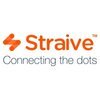
i
Access
Healthcare
Filter interviews by
Access Healthcare Senior AR Caller Interview Questions and Answers for Experienced
Access Healthcare Senior AR Caller Interview Experiences for Experienced
8 interviews found
I applied via Naukri.com and was interviewed in Jun 2024. There was 1 interview round.
(4 Questions)
- Q1. About previous job experience
- Q2. Type of bills of UB04 claims
- Q3. What's ABN form
- Q4. What is CO-50 denial
Interview Preparation Tips
(2 Questions)
- Q1. What is your name
- Q2. How old are you
- Ans.
Age is a measure of time since birth, reflecting experiences and maturity gained over the years.
Chronological Age: This is the actual time in years since my birth, which is a straightforward way to express age.
Life Experiences: Age often correlates with experiences, such as education, career milestones, and personal growth.
Maturity Level: Age can also reflect emotional and psychological maturity, which varies from pers...
I applied via Walk-in and was interviewed in Sep 2023. There was 1 interview round.
(3 Questions)
- Q1. Face to face in virtual
- Q2. Self introduction
- Q3. About previous experience
Interview Preparation Tips
I appeared for an interview before Feb 2024.
(1 Question)
- Q1. For freshers they just ask tell me about yourself and they gave any topic for 2mins
I applied via Recruitment Consulltant and was interviewed before May 2023. There was 1 interview round.
(2 Questions)
- Q1. What you know about RCM cycle ?
- Q2. What is copay, deductible ?
I applied via Recruitment Consulltant

(1 Question)
- Q1. They clearly asks for job experience and work flow .
(1 Question)
- Q1. In technical round mostly asks for medical billing basics and denial scenarios
Interview Preparation Tips
(1 Question)
- Q1. About ur self in a brief notes
I applied via Naukri.com and was interviewed before Oct 2022. There were 2 interview rounds.

(2 Questions)
- Q1. Denial management
- Q2. Denial codes from physician billing
Interview Preparation Tips
Top trending discussions






Interview questions from similar companies


(2 Questions)
- Q1. Whats your name
- Q2. Any experience into AR

(2 Questions)
- Q1. What is AOB in medical billing
- Q2. What is ABN in medical billing
Access Healthcare Interview FAQs
The duration of Access Healthcare Senior AR Caller interview process can vary, but typically it takes about less than 2 weeks to complete.
Tell us how to improve this page.
Access Healthcare Interviews By Designations
- Access Healthcare Senior Client Partner Interview Questions
- Access Healthcare Client Partner Interview Questions
- Access Healthcare Assistant Client Partner Interview Questions
- Access Healthcare Senior AR Caller Interview Questions
- Access Healthcare AR Caller Interview Questions
- Access Healthcare Group Leader Interview Questions
- Access Healthcare Quality Analyst Interview Questions
- Access Healthcare Delivery Manager Interview Questions
- Show more
Interview Questions for Popular Designations
Overall Interview Experience Rating
based on 7 interview experiences
Difficulty level
Duration
Interview Questions from Similar Companies
Access Healthcare Senior AR Caller Reviews and Ratings
based on 86 reviews
Rating in categories
|
Senior Client Partner
6k
salaries
| ₹1 L/yr - ₹8.6 L/yr |
|
Client Partner
2.8k
salaries
| ₹1 L/yr - ₹6 L/yr |
|
AR Caller
1.4k
salaries
| ₹1.2 L/yr - ₹6.5 L/yr |
|
Client Specialist
1.1k
salaries
| ₹1 L/yr - ₹9.6 L/yr |
|
Assistant Client Partner
867
salaries
| ₹1 L/yr - ₹5 L/yr |

S&P Global

IKS Health

AGS Health

Straive
- Home >
- Interviews >
- Access Healthcare Interview Questions >
- Access Healthcare Interview Questions for Experienced













